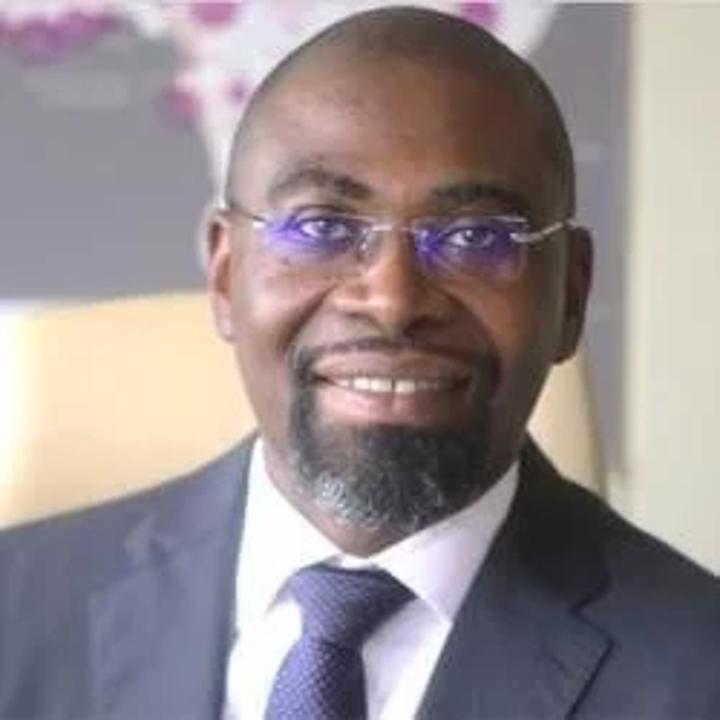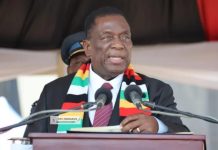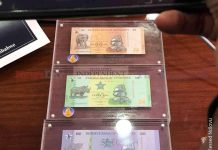Africa-Press – Zimbabwe. Local currency financing has emerged as the most pressing obstacle to scaling Africa’s energy ambitions, with ministers and development financiers warning that foreign-currency debt is exposing utilities, projects, and consumers to severe financial risk.
The issue dominated a pre-Africa Investment Forum (AIF) high-level panel discussion on Monday concerning ‘Country Leadership and Private Sector Participation,’ where speakers repeatedly stressed that without viable local-currency instruments, Mission 300 and broader energy-access targets will stall.
Mission 300 is an initiative by the World Bank Group and African Development Bank (AfDB) to connect 300 million people in Sub-Saharan Africa to electricity by 2030.
The panel noted Africa’s power sector cannot continue relying on foreign-currency borrowing while earning revenue in volatile local currencies, as it is unsustainable.
“We cannot keep financing African power projects in hard currency when revenues are in unstable local currencies—it is simply unsustainable,” AfDB Energy Financial Solutions, Policy and Regulation director Wale Shonibare said.
“If consumers pay in local currency, then our financing must be in local currency or hedged accordingly. Relying on unhedged foreign-currency loans is destabilising tariffs, scaring investors, and putting governments under pressure they cannot carry.”
He added that many governments no longer wanted to issue sovereign guarantees, so risk-management tools like hedging were becoming absolutely essential.
TCX Fund Regional vice president, Sub-Saharan Africa, Demba Tandia said local-currency risk remained “the dark that is still there.”
He warned that as soon as foreign currency enters a model where revenues are in local currency, “the risk is still around… it’s just shifting from one market to another.”
Borrowing in dollars, he said, often appears cheaper upfront but quickly becomes unmanageable once exchange rates move.
Tania revealed that TCX and its shareholders—including the International Finance Corporation (IFC) and the European Commission—are developing hedging and blended-finance tools to make local-currency borrowing viable, including a planned billion-dollar facility with 55% earmarked for Africa.
The facility is designed to provide “double-digit-rate and quadruple-rate protection” against currency volatility, according to Tandia.
Responding, Gambia’s Minister of Petroleum and Energy, Nani Juwara, admitted that the mismatch between foreign-currency debt and local-currency revenues was crippling utilities across the continent.
“This is the biggest challenge for most countries in Africa,” he said.
“Investments… are denominated in foreign currency… and we are receiving payments in local currency.”
He added that tariff structures often fail to keep pace with currency shifts:
“Most of the time, utilities are facing a lot of losses simply because they have currency differences that are not covered.”
Despite the currency headwinds, Juwara positioned Gambia as a ready investment destination, emphasising stability, legal protections, and aggressive electrification targets.
“The Gambia is an investment haven,” he declared, adding that “our constitution… guarantees all investors against any attempt in terms of nationalisation or appropriation.”
Investors, he said, can “repatriate their earnings… without any restriction,” supported by incentives including tax holidays, import-duty exemptions for energy equipment, and VAT waivers for renewable investments.
He argued that Gambia’s small size and advanced grid-extension efforts give it an edge.
“Our size is an advantage for us. We can work together, scale up, and transform communities,” the Gambian official added.
Private-sector representatives welcomed the reform sentiment but urged governments to clarify the rules governing decentralised renewable systems.
Husk Power Systems chief executive officer Manoj Sinha said developers need certainty on the decentralised energy resources programme and how it is going to be interacting with the central grid.
He said decentralised systems remain “the fastest and most capital-efficient way to reach the remote parts of any country,” and urged alignment of mini-grids, rooftop solar, and renewable solutions for productive use.
“You don’t have to take the route that global norms took… You can start with 90%-95% renewable energy assets from the get-go,” Sinha said.
Cheick-Oumar Sylla, IFC’s Division Director for North Africa and Horn of Africa, stressed that predictability is critical for investors, particularly smaller developers with limited equity.
“The key… is really to set the direction and to give you some predictability,” he said.
He cited blended-finance tools such as the Zafiri Initiative, which provides first-loss capital, and Multilateral Investment Guarantee Agency guarantees to derisk fragile markets.
But he warned that scaling Mission 300 will require more innovation.
“You have to continue to invest in large projects… but the main gap… is how to structure your own capital projects,” Sylla said.
Panelists agreed that Africa must deepen domestic capital markets, integrate decentralised and centralised systems through clear regulation, and expand hedging tools to prevent currency instability from derailing progress.
Without sustainable local-currency solutions, they warned, Africa risks building energy systems that investors cannot support and consumers cannot afford.
The founding partners of AIF are the AfDB, Afreximbank, Africa50, Africa Finance Corporation, Development Bank of Southern Africa, Islamic Development Bank, European Investment Bank, Trade and Development Bank, and the Arab Bank for Economic Development in Africa.
The AIF is an investment platform aimed at facilitating global investment into Africa by convening project sponsors, financiers, governments, and other key stakeholders with the objective of closing deals.
The AIF is running its annual Market Days 2025 conference, which is running from Wednesday to Friday, in Morocco.
For More News And Analysis About Zimbabwe Follow Africa-Press






